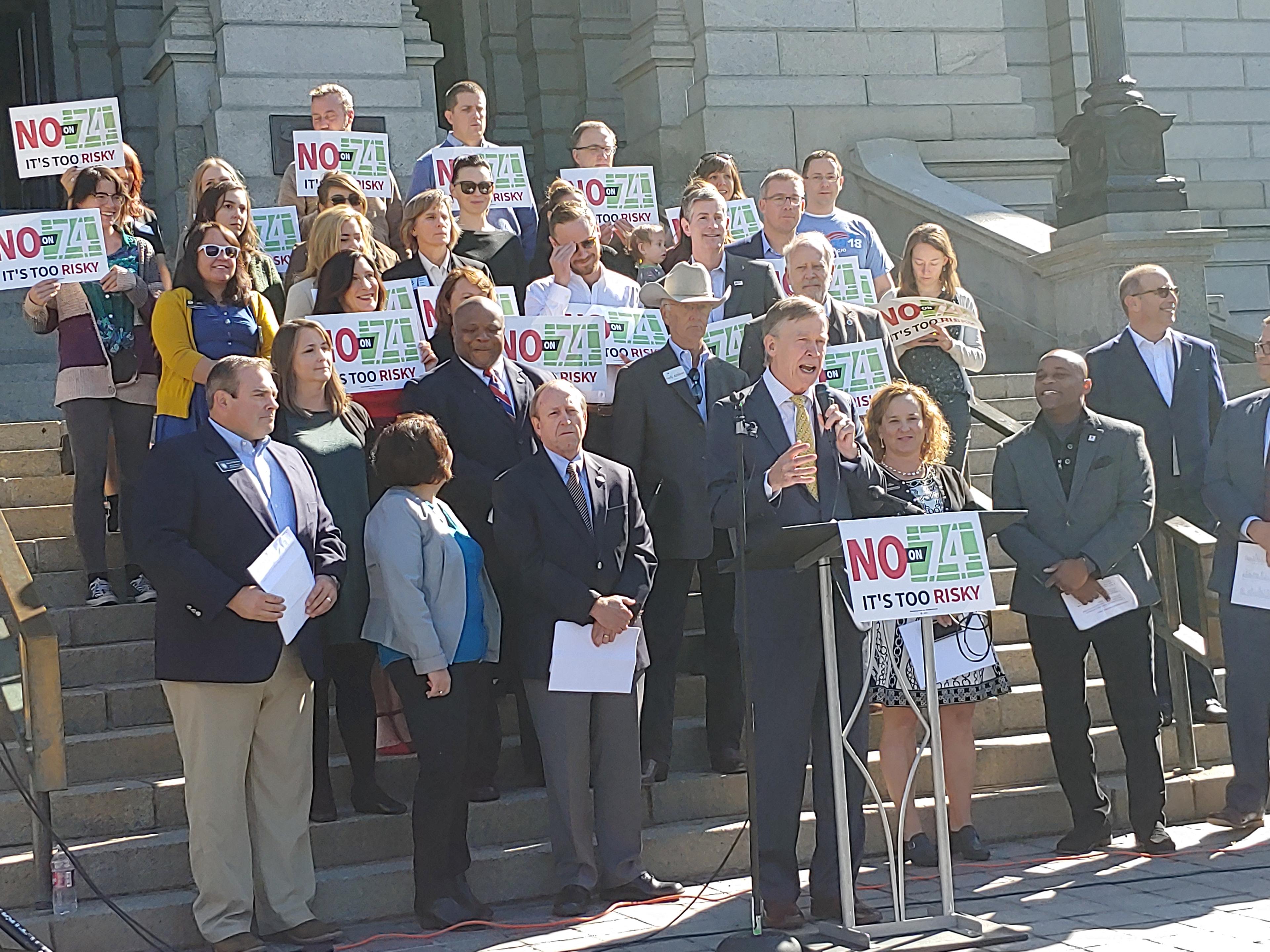

Opposition to Amendment 74—a measure that would compensate private landowners if government actions diminished their property values—is growing as Democratic Gov. John Hickenlooper, Republican Colorado Springs Mayor John Suthers and Democratic Denver Mayor Michael Hancock vehemently rejected the initiative on the steps of the State Capitol on Friday.
The ballot measure is largely funded by the oil and gas industry, which has said government limits on drilling can decimate property values. Amendment 74 is also considered to be the industry’s response to Proposition 112 (also known as Initiative 97), which would require a 2,500-foot setback between oil wells and homes.
At a news conference, the three political leaders listed multiple examples of how the amendment could derail state growth. Mayor Suthers called it a potential litigation nightmare.
“I like to refer to it as a wolf in sheep's clothing,” he said. “Property rights always sounds great. But folks this is a disaster for the taxpayers of our state and local governments."
Mayor Suthers went on to describe how the amendment could stop roadwork and highway projects and put restrictions on where affordable housing can be built. Meanwhile Gov. Hickenlooper called it one of the worst initiatives he’s seen in 15 years of public service.
“We would expect in almost all infrastructure projects higher cost, higher maintenance costs, unplanned expenses,” he said.
Educators, realtors, environmentalists and anglers also expressed concern that the amendment is written too broadly and is too risky for the state.









